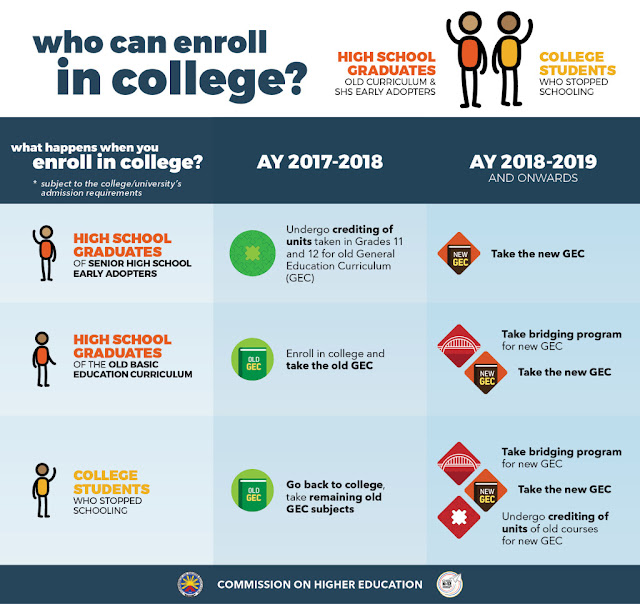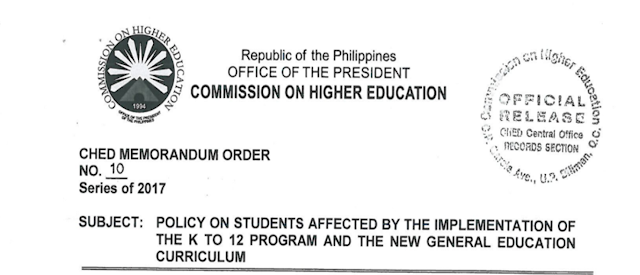Because of the changes in Philippine education system shifting to K to 12 program. high school graduates before the year 2016 could be affected greatly if they don't enroll in college or finish their college program by 2018. College institutions might eventually require them to comply and take bridging courses or take additional subjects to comply with the new curriculum.

For high school graduates before 2016 who are not attending college, you should take the the opportunity to enroll this year or until next year (2018) in college. Otherwise, you might be required by the college or university to take more subjects or take a bridging program, which is much like going to senior high school as well.
According to Patriacia Licuanan, CHED (Commission on Higher Education) Chairperson,
“First of all, we do have as part of our transition plan, we will allow students who are out of school and those who have graduated before 2016, this is your last chance, get into college now. And that’s why we’re going through some kind of a campaign to encourage those who are truly interested to go to college, or may not be interested right now but given this opportunity might change their minds.”
“Now is really the best chance to go back to college...by next year, lifelong learners who would want to continue their undergraduate studies will face more requirements in going back to school, as colleges and universities may require them to take bridging programs or additional subjects in line with the competencies required in the new GE (general education) curriculum.”
The K to 12 program will be fully implemented by school year 2018-2019.
Licuanan also said that because of financial pressures, they will be offering "FREE TUITION" in state universities and colleges and will provide scholarships to eligible students. This program has an allotted P 8.3 billion.
“We fully recognize the financial constraints that hamper our lifelong learners from pursuing their education,” Licuanan said. “As such, we will be implementing a free tuition scheme in our SUCs this year and continue to provide scholarship programs to eligible students. These interventions underline our efforts and commitment here at CHED to provide wider access to quality higher education nationwide.”
The diagram below from CHED should be able to guide students who are out of school.
Students who graduated high school before 2016 and who are currently out of school or college, does not necessarily need to attend senior high school. However as Licuanan said, they might be required by the college or university to take more subjects or to attend a bridging program.
The following is an excerpt from the CHED Memorandum No. 10 of 2017
Students who graduated high school before 2016 and who are currently out of school or college, does not necessarily need to attend senior high school. However as Licuanan said, they might be required by the college or university to take more subjects or to attend a bridging program.
The following is an excerpt from the CHED Memorandum No. 10 of 2017
Here is the complete copy of the memorandum:
©2017 THOUGHTSKOTO
SEARCH JBSOLIS, TYPE KEYWORDS and TITLE OF ARTICLE at the box below





No comments:
Post a Comment